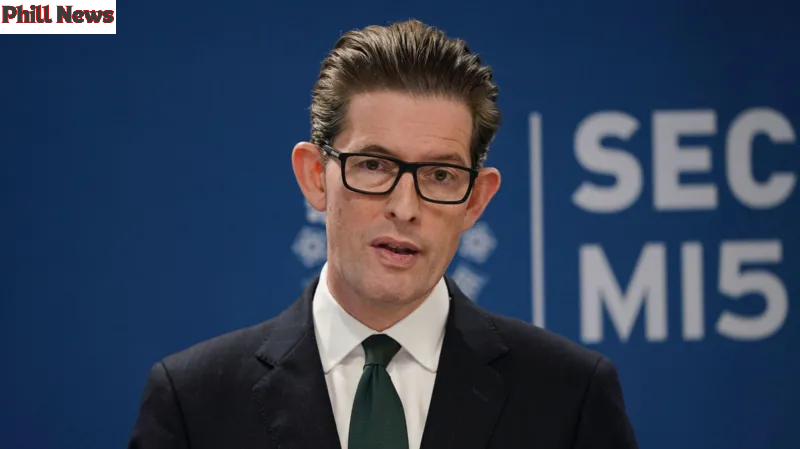
Russian intelligence is on a mission to “sow continued chaos on the streets of Britain and Europe,” the MI5 chief said.
In a rare public address, Ken McCallum warned that Britain faces the “most complex and interconnected” threat it has ever faced. He said MI5 has also responded to 20 Iranian-backed attacks since 2022.
He said the intertwining of terrorist and nation-state threats gives MI5 a “blood-soaked and difficult task.”
A total of 43 late-stage “mass murder” plots using firearms and explosives have been thwarted in Britain since 2017, he said.
McCallum said the intelligence agencies’ counter-terrorism work still primarily concerned Islamic extremism, followed by “far-right terrorism”.
But he added that MI5 had to contend with a “dizzying range of beliefs and ideologies”.
“The first 20 years of my career here were dominated by terrorist threats. Now we face this problem against the backdrop of a major ground war in Europe, alongside state-sponsored assassination and sabotage plots,” he said.
Speaking at MI5’s London Counter-Terrorism Centre, McCallum said the number of MI5 investigations into state-sponsored threats had risen by 48% in the past year.
McCallum accused Russia of “arson, sabotage, and even more dangerous acts” in the UK.
He said that since Russia invaded Ukraine, more than 750 Russian diplomats have been expelled from Europe, the “vast majority” of whom were spies.
This affects the ability of Russian intelligence to act, McCallum said, adding that anyone the UK and its allies consider to be a Russian spy has been denied a diplomatic visa.
Russian state agencies have outsourced their “dirty work” to private intelligence agents and other proxies, which has undermined the professionalism of their operations and made them easier to disrupt.
He also told the press conference that MI5 and police had responded to 20 Iranian-backed attacks since 2022 that “could pose a lethal threat to UK nationals and UK residents.”
He said targeted counter-terrorism efforts remained split between “75% Islamic extremism and 25% right-wing extremist terrorism”.
McCallum expressed concern about the number of young people being drawn into online extremism.
Around 13% of people being investigated for links to terrorism are under 18, a figure that has tripled in the past three years, he added.
He said other problems encountered by MI5 were exacerbated by the internet, with many of the threats coming from “individuals who have been indoctrinated online”.
“In the dark corners of the internet, talk is cheap.” “Distinguishing between real conspirators and armchair extremists is a tough task,” he told reporters.
“While anonymous online connections often have no consequences, a small minority of them lead to deadly actions in the real world.”
He spoke of the difficulties security agencies face in dealing with “an unstable terrorist pool whose ideology is largely unclear” and whose affiliation is “anchoring.”
 Phill News Entertainment – Phill News
Phill News Entertainment – Phill News



